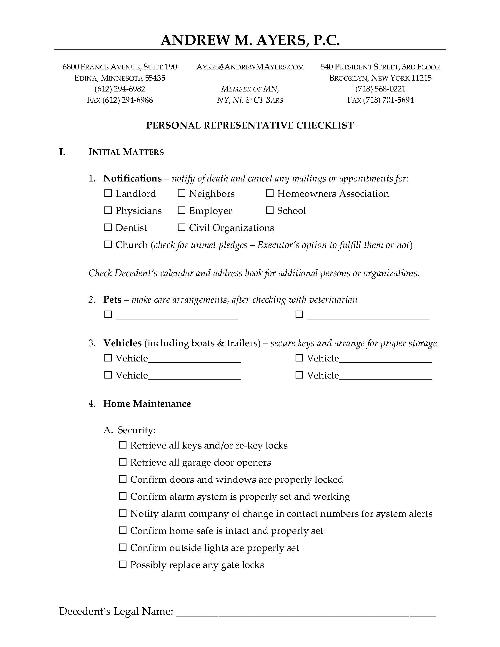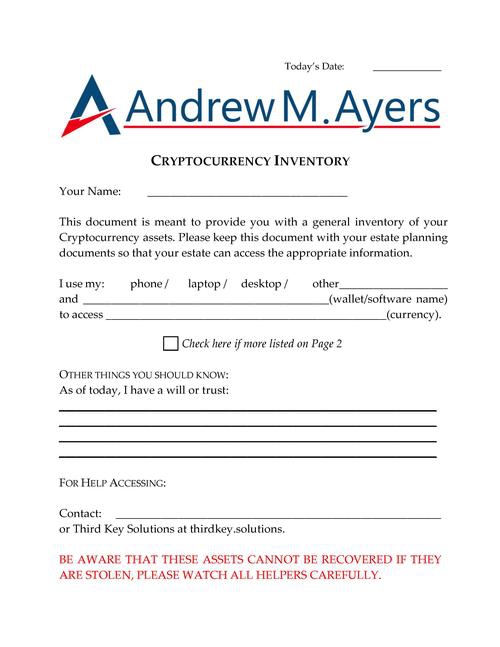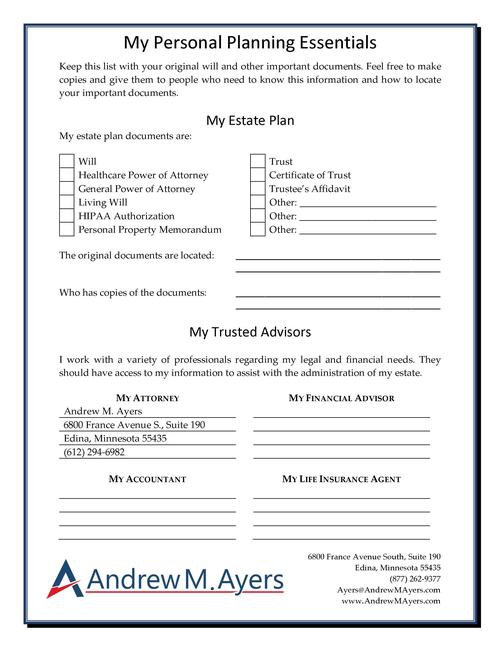 If you still use a physical bank with a local branch, they have likely offered you a safe deposit box to store your important documents at some point. This is more common in traditional bank locations though, with many banks shifting to virtual operations and slimmed down customer service in their branches.
If you still use a physical bank with a local branch, they have likely offered you a safe deposit box to store your important documents at some point. This is more common in traditional bank locations though, with many banks shifting to virtual operations and slimmed down customer service in their branches.
When you are trying to decide where to store your estate plan documents, a safe deposit box might seem ideal. Safe deposit boxes are designed to keep important documents and valuables secure from theft, fire, and other disasters. However, storing your original will in a safe deposit box can create significant problems for your executors and loved ones when they need it the most.
Whenever I complete an estate plan with my clients, the question inevitably comes up about where to store the documents. While many people's default thinking is to use their safe deposit box, there are a variety of reasons why it's not the best place to store the documents.
Why a Safe Deposit Box Isn't the Best Option
Putting your original documents in a safe deposit box is often a common bit of advice you read about in blogs and hear on podcasts, but storing the documents there can create issues for your loved ones.
Access Issues After Death
One of the main reasons to avoid storing your original will in a safe deposit box is the potential difficulty in accessing the box after your death. Most banks require proof of death, such as a death certificate, and possibly a court order or other legal documentation before allowing anyone to access a safe deposit box. This process can be time-consuming and may delay the execution of your will when timely access is crucial.
Probate Complications
For probate to proceed smoothly, the original will is often required. If the will is locked in a safe deposit box, the executor may face additional legal hurdles to retrieve it. This can lead to delays and added expenses in settling the estate, which can be burdensome for your beneficiaries.
Restricted Access
In many cases, safe deposit boxes are jointly held, which can simplify access if one holder dies. However, if the box is solely in the name of the deceased, accessing it becomes more complicated. Loved ones might not be aware of the box's existence, its location, or the key's whereabouts. This can cause significant delays and stress during an already difficult time.
Bank Hours and Availability
Banks have specific hours of operation, which can restrict access to the safe deposit box. If your executor or family members need to access your will outside of banking hours or during holidays, they will be unable to do so. This could further delay important estate matters, particularly if the will needs to be reviewed promptly for legal or financial reasons.
Where Should I Store My Will?
Instead of using a safe deposit box, consider alternative methods to store your will securely while ensuring it is accessible to your executor and loved ones when needed. Some of these alternatives include:
-
Fireproof Safe at Home: A fireproof safe at home can provide both security and accessibility. Ensure that your executor knows the safe's location and the combination or key.
-
Trustworthy Individual: You can also entrust your original will to a trusted family member or friend, ensuring they understand the responsibility and importance of having the document ready when needed.
-
Electronic Storage: While not a substitute for the original, having an electronic copy can provide immediate access to the will's contents. Some jurisdictions also recognize electronic wills, though the legality varies by location.
The first option is normally the one that I recommend for my clients and I also offer electronic storage of all documents as well so that you can have access to the PDF versions of your documents at your convenience. This can be very helpful when your bank or financial advisor just needs an electronic copy of your power of attorney or other documents for their files (as opposed to the original).
Another important step in the process is to make sure you are organizing your information for your loved ones when they need to access your documents. As the son of a librarian, I'm a big fan of having checklists and organizational systems for our documents when it comes to your estate plan. One simple way to do this is to use a checklist that I've created (with the help of a financial advisor) and that you can download and use for free:
If you've got cryptocurrency, you should create an inventory of your holdings:
And if you're already dealing with someone else's estate and are looking for help managing the next steps, there's also a checklist that may help you:
Whichever storage method you choose, the most critical factor is ensuring that your executor knows where the will is and can access it without legal complications. Clearly communicate your plans to your executor, and consider providing them with a copy of the will along with instructions on how to locate and access the original. This can significantly reduce stress and confusion during a difficult time and ensure that your wishes are carried out as you intended.
Need Help Managing Your Will?
If you've got a will that needs to be updated or managed, or if you don't already have an estate plan, let's schedule a Legal Strategy Session online or by calling my Edina, Minnesota office at (612) 294-6982 or my New York City office at (646) 847-3560. My office will be happy to find a convenient time for us to have a phone call to review the best options and next steps for you to work with an estate planning attorney.







